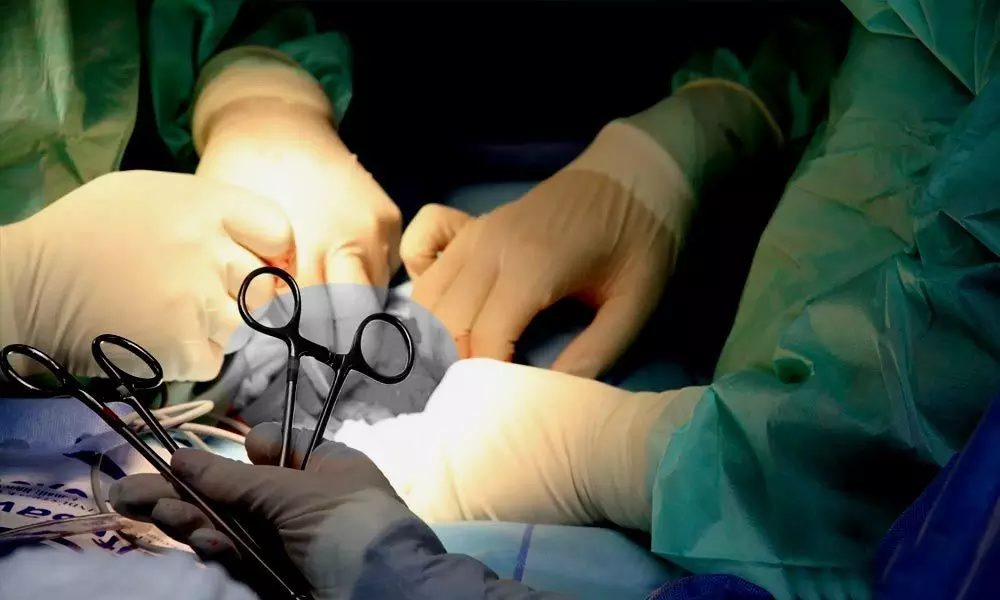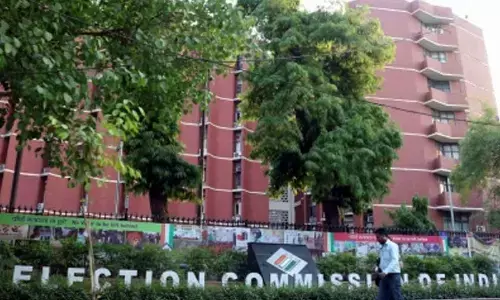Nutritional deficiency: Big downside of weight loss surgery

Bariatric surgery can be a life-changer for severely obese teenagers, but the recipients may develop nutritional deficiencies years after treatment that can carry their own health risks if not properly managed, said health experts.
New Delhi: Bariatric surgery can be a life-changer for severely obese teenagers, but the recipients may develop nutritional deficiencies years after treatment that can carry their own health risks if not properly managed, said health experts.
Lifestyle modifications and eating healthy food, along with exercise, might work, they added.
Bariatric surgery refers to a gamut of weight-loss surgeries often recommended to people suffering from chronic obesity and obesity-related health problems such as diabetes, hypertension, high cholesterol level and sleep apnea.
There are many types of bariatric operations, but surgeons commonly use three -- Roux-en-Y gastric bypass, vertical sleeve gastrectomy and laparoscopic adjustable gastric banding.
By making changes to the anatomy of the gastrointestinal tract, including the stomach and digestive system, these surgeries help people lose weight by cutting down their food intake, or by reducing the absorption of nutrients, or both.
However, the side effects of bariatric surgery may include infection, bone demineralisation, anaemia, diarrhoea, nutritional shortages, gallstones, hernias, pregnancy complications for women and premature birth of babies.
According to Faizal Mumtaz, Senior Consultant, Department of Minimally Invasive Surgery, at Delhi's Indraprastha Apollo Hospital, bariatric surgery or metabolic surgery is basically a weight reduction surgery, which has an additional advantage of correcting diabetes.
"It can either be restrictive or a combination of restrictive and malabsorption. Restrictive bariatric surgery reduces the size of the stomach. This limits the amount of food that can be consumed and creates a feeling of fullness," Mumtaz told IANS.
"A malabsorptive bariatric surgery limits the number of nutrients the body can absorb, and the patients have to be provided supplements (iron, B1, B12, etc)," Mumtaz explained.
"Post-bariatric surgery, it is very important to make lifestyle modifications, eat healthy food and maintain a healthy regime. There's no particular precaution, but the only thing to keep in mind is maintaining a healthy and exercise regime," Mumtaz added.
In a recent study published in the journal Clinical Gastroenterology and Hepatology, researchers found that Roux-en-Y gastric bypass surgery and vertical sleeve gastrectomy are linked to lower levels of vitamin B12 and iron deficiency.
People with B12 deficiency can not only suffer from anaemia but can also experience symptoms of depression, irritability, cognitive slowing and forgetfulness. Severe deficiency can sometimes lead to numbness or tingle in extremities, gait problems and partial paralysis.
"Though it is a common notion that nutrient absorption gradually decreases over the years post-bariatric surgery, such procedures are highly beneficial to overweight patients above the age of 50 years," R.P. Singh, a gastroenterologist at Saroj Super Specialty Hospital in New Delhi, told IANS.
He, however, added that teenagers must avoid such surgeries.
"Nutrient supplementation helps in providing the essential nutrients, but teenagers undergoing such gastric bypass surgery tend to lose essential nutrient absorption and become susceptible to conditions like anaemia due to lack of iron, copper and essential vitamins like folate and Vitamin B12 over the years," Singh explained.
He added that iron deficiency causing anaemia is a concern in 5-20 per cent of the patients undergoing gastric bypass surgery as teenagers.
"Through proper dietary follow-ups and supplements, their levels of micronutrients can be managed," Singh concluded.
BY BHARAT UPADHYAY










